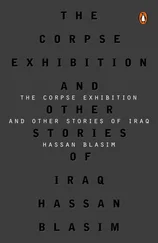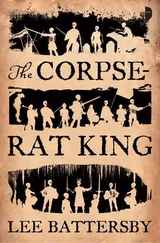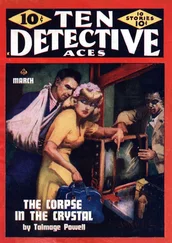Many booksellers put rocks or pieces of brick on the magazines to keep them in place. Some had laid out long boards to secure a row of books without hiding their titles. Books on Shiite theology, which were previously banned, had the lion’s share. New newspapers had multiplied. It was difficult to keep up with names. The lack of any law regulating publication meant that anyone with the money and the desire could start a newspaper.
In addition to newspapers, there were back issues of foreign magazines and many new Arabic magazines with glossy covers. Seduction flowed from the eyes of the female singers and movie stars on the covers. These were a few centimeters away from equally glossy posters of turbaned clerics with stern and angry faces. My uncle returned, showing me what he had found: first editions of some of al-Jawahiri’s poetry collections and one of Sa’di Yusif’s, together with some Jurji Zaydan novels and Neruda’s autobiography.
On our way to al-Shahbandar café we saw a young man standing in front of a set of booklets and pamphlets piled on a box on the ground. He was tall and clean-shaven, in his early thirties with curly brown hair. He wore a white shirt and gray pants. We drew closer. The pamphlets bore the logo of a Revolutionary Workers’ Party, of which I hadn’t heard. Some of the booklets were writings by Trotsky, Lenin, and Gramsci. My uncle greeted him and started asking him about the party’s links to the Communist Party.
The young man was critical of the Communist Party for many reasons, chief among them its mistaken decision to join the governing council that had been announced a few days before. That was a recognition of the occupation and a legitimization of its project. The young man spoke passionately and confidently, prefacing his sentences with “dear” or “brother,” and used his right hand to illustrate main points.
My uncle told him that he himself had left the Communist Party eight years before, because he was against its practices, dubious alliances, and new trajectory. Then he asked the young man where he was from.
“Al-Thawra,” he answered.
I teased him, saying “You mean al-Sadr City.” 2
“No, dear, al-Thawra City.”
My uncle asked him about the popularity of Marxist ideas in al-Thawra City after all these years.
The man sounded optimistic and said that his party had active cells and good numbers there, but that the embargo had dealt a severe blow to political activism because it had destroyed the entire social fabric. “Were it not for the embargo,” he said, “the regime wouldn’t have survived.”
My uncle was not as optimistic as this young bookseller. He asked him what he thought about the rise of sectarian discourse and how religious thinking had struck deep roots during the years of the embargo. The man responded that compared with other countries in the region, the history of secularism in Iraq was well known, and that religious parties had no solutions to offer, just obscurantism. Islamic movements had failed anyway in the Arab world, he said.
A devout man who was listening to the conversation started to argue with the young man. My uncle took this as an opportunity to leave. He took some of the booklets and gave the young man some money as a donation. The man thanked him and invited us to visit the party’s temporary headquarters, in the Rafidayn Bank at the beginning of Rashid Street. My uncle asked, “Are you the ones who looted the bank?”
The man laughed and said, “No, we arrived too late.” My uncle joined in the young man’s laughter.
After we had left, I asked what he thought of what the bookseller had said.
The young man was too optimistic, especially about secularism, Uncle Sabri said, then acknowledged that perhaps it’s necessary to be optimistic. He added that he was reminded of one of his favorite quotes from Gramsci: “Pessimism of the intellect. Optimism of the will.” He himself was rather pessimistic about sectarianism. What had taken place, he said, was not just an occupation but the destruction of a state more than eighty years old. War and occupation were the final blows, but the process had begun with the destruction of the infrastructure during the 1991 war. Then there was the embargo, which had destroyed the social fabric, and now the void created by the occupation was being filled by these sectarian parties because they had institutions. Their rhetoric touched people’s hearts and they knew how to exploit the political climate. But, my uncle added, the history of secularism in Iraq runs deep. The Da’wa Party, for example, was founded in Najaf, because with the spread of communism even in Najaf and Karbala, people were confusing Shiite with Shiyu’i (Communist), which terrified the religious clerics.
We had reached al-Shahbandar café. I asked: “Did you see all the posters of clerics and all the theology books being sold?”
He said, “Of course, after long years of suppression there is a thirst, but perhaps it will be quenched.”
We entered the café, found two empty seats, and ordered tea. There was a French TV crew conducting interviews with intellectuals. I saw the famous theater director Salah al-Qasab sitting a few meters away. They approached him, but I heard him decline more than once to be interviewed. The journalist insisted and asked him through the translator: “What do you have to say about what has happened?”
“Film the streets of Baghdad. That’s what I think,” he answered.
Ten minutes later my uncle saw a man with a stack of newspapers under his arm. He was handing out copies of Tariq al-Sha’ab, the mouthpiece of the Communist Party. They hugged and chatted for fifteen minutes and then Sabri came back with a copy. He told me that the man was an old comrade whom he’d last seen in Beirut in 1982.
I searched for a familiar face, but I didn’t see any of the people I usually saw here. My uncle started reading the newspaper. There were announcements about public funerals for the party’s martyrs who had been executed years ago. There was an announcement in big letters about a major demonstration in three days to commemorate the anniversary of the 14th of July revolution. It called on all the party’s friends and supporters to assemble at Liberation Square to march to Firdaws Square. My uncle asked whether I was interested in taking part.
“Sure,” I said. “First, to be with you and second, to go to a demonstration freely for the first time in my life, without being forced to do so. I have to do it for the sake of variety at least.” We both laughed.
I looked at my watch and reminded him that it was time to meet our driver. We got out and passed by the young commie again. He greeted us from a distance and we smiled back. My uncle asked Hamid to drive him to the new headquarters of the Communist Party, which was at the insurance building at al-Andalus Square.
“I thought you said you had divorced the party?” I asked.
“Yeah, but I just want to get some news about my comrades … ask about some of them and see who’s been back. I won’t be long,” he said.
I was feeling sleepy so I told him I’d take a nap in the back seat until he came back. When he returned, his smile had disappeared. I asked what was wrong. “Nothing,” he said.
The next day the electricity was back on long enough to see on TV the official announcement of the formation of the governing council under the aegis of Paul Bremer. The council was a hodgepodge of names supposedly representing the spectrum of Iraqi society, but we had never heard of most of them. What they had in common was that each name was preceded by its sect: Sunni, Shia, Christian … We were not accustomed to such a thing. My uncle was furious when he saw the secretary general of the Iraqi Communist Party sitting with the other members. He’d heard at the headquarters that the party had polled its cadres and that they’d voted to be part of the council, but he still couldn’t believe his eyes.
Читать дальше












